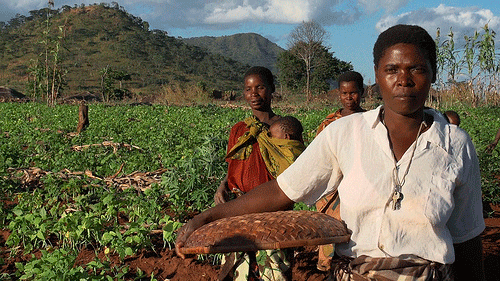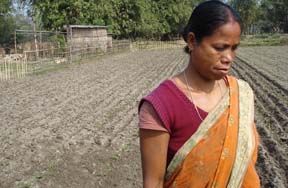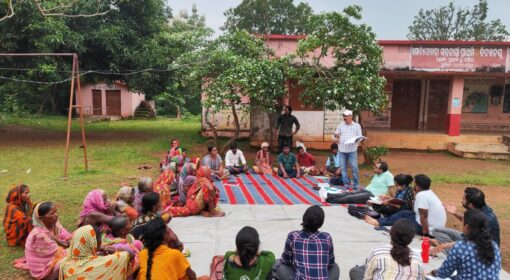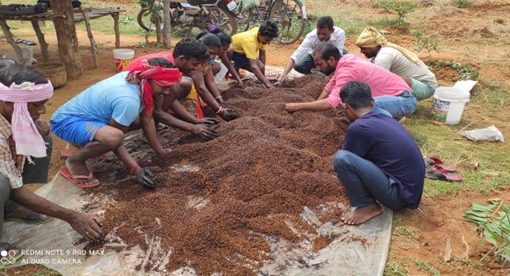Land Grabs: The Global Rush for Farmland

Imagine one big foreign company owning half the arable land in a country. This almost happened a few years ago as South Korean firm Daewoo offered to lease a million hectares to grow corn, and another 120,000 hectares to produce palm oil in Madagascar. A public outcry followed and the deal fell through by early 2009.
Foreign investment in agricultural land is not necessarily a problem. It becomes an issue when private citizens are displaced through processes that are insensitive at best and willfully corrupt/ illegal at worst. Across a large number of cases that have come to light worldwide, the many dimensions of the problem come to light: information asymmetry between the farmers and foreign companies; complicity of national governments; the role of institutional investors in diverting huge amounts of short-term investments in land; the relevance of international human rights agreements and the efficacy of international law.
Land (and water) grabbing is an important issue because it exploits small farmers in developing countries. But it affects non-farmers/ city-dwellers too, as it pushes food systems closer to large-scale commercial farming and value chains. This has repercussions on food quality, availability and prices.
The videos below ask questions and shed some light on the nature of the problem; and some stories from Ghana, Mozambique, Brazil and Uganda.
5 Ways to Re-think Land Grabs
Our conception of land-grabs and global discussions on the phenomenon are a bit too ‘Africanized.’ They are informed too much by contentious, large-scale land deals in Africa and too little by examples from other regions (such as Latin America). This has led to many unfounded assumptions about the nature of land-grab.
For example, we tend to focus mostly on foreign businesses as the perpetrators, while Latin America is rife with examples of regional/ national companies engaging in such deals. Examples from the region also demonstrate the role of multi-use ‘flex-crops’ in drawing up policy-level justifications for such deals.
In this short interview, Dr. Saturnino (Jun) Borras fleshes out 5 such perspectives from which land-grabbing could be viewed afresh. And perhaps understood better.
Land Rights and Land Grabs in Ghana
In Ghana, hundreds of farmers have reported dubious, large-scale land deals made between government/community leaders and big corporations… that have forced them out of their lands and livelihoods. This cannot take place without unethical collusions and corrupt practices by individuals. However, it is important to view this in the context of the larger policy landscape which leaves scope for individuals to engage in such practices.
More specifically, multiple property rights regimes (State, Private and Communal) and lack of clarity on regulatory oversight functions of government bodies creates grey legal areas that can be exploited. The onus is on the government to review the situation, plug the loopholes and create a policy environment that is conducive and fair to farmers and investors alike.
Small Peasants, Big Plantations: Negotiating Land in Niassa, Mozambique
The Mozambiqan government has marked the northern Niassa province to promote commercial, large-scale tree plantations. Currently, the single biggest plantation in the region comprises of 13,000 hectares of eucalyptus and pine, owned by a company called ‘Chikweti Forests of Niassa.’
A government-led investigation in 2010 reported that the company had acquired over 32,000 hectares illegally. The big losers were small farmers, vulnerable due to lack of awareness and complicity of corrupt government officials.
A delegation of peasants from the region recently travelled to The Netherlands, and met lawmakers, students and investors in the Chikweti plantations. (The visit was organised by FIAN Netherlands) Most notably, they met the Dutch national pension fund ABP, the biggest investor in the project.
While denying accusations of ‘land grabbing’ by Chikweti Forests, ABP does admit that the project fails to meet their Environment, Social and Corporate Governance (ESG) standards. While refusing to withdraw their investments in Chikweti Forests, they promised the peasants’ delegation more transparency and greater benefits from the project. This seems to have left the peasants cautiously hopeful about their future.
Soy Farming and Land Grab in the Brazilian Amazon
Large-scale soy monoculture is expanding rapidly in Latin America. Boosted by investment from multi-national corporations, it has moved well beyond the southern states and into the Amazon area.
(Courtesy: The Source Project)
In Kalangala, Uganda, John Muniishya woke up one day to find bulldozers clearing his land to plant oil palms. John and his community have preserved their forests and lands for generations. Now their way of life is at risk. Help John. Join Friends of the Earth International, and take action to stop land grabbing in Uganda.






